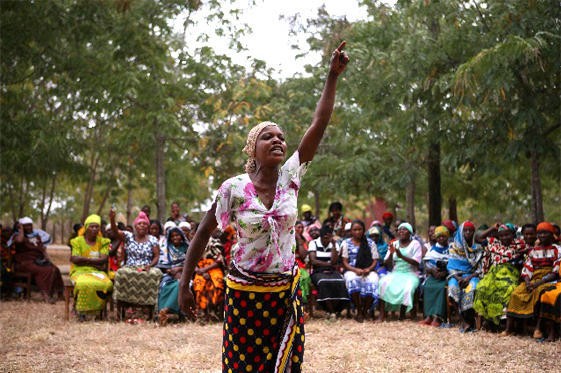Deadline: December 31, 2015
The United Nations Democracy Fund invites civil society organizations to apply for funding for projects to advance and support democracy during the annual proposal window. UNDEF supports projects that strengthen the voice of civil society, promote human rights, and encourage the participation of all groups in democratic processes. The large majority of UNDEF funds go to local civil society organizations — both in the transition and consolidation phases of democratization.
UNDEF projects are two years long. Applicants can request a grant of a minimum of 100,000 US dollars and a maximum of 300,000 US dollars.
Thematic Areas
Proposals are subject to a highly rigorous and competitive selection process, with fewer than two per cent chosen for funding. Projects fall under one or more of seven main areas:
- Community Activism
- Rule of Law and Human Rights
- Tools for Knowledge
- Women’s Empowerment
- Youth Engagement
- Media and Freedom of Information
- Strengthening Interaction with Government
Eligibility
The following institutions are eligible for UNDEF grant funding:
- Civil Society Organizations and Non-Governmental Organizations, engaged in promoting democracy. These are anticipated to receive the bulk of the funding.
- Independent and Constitutional Bodies, including Election Commissions, Ombudsman Institutions, National Human Rights Institutions and other independent governance bodies, for project proposals facilitating the inclusion of the voice of civil society.
- Global and Regional inter-government bodies, organizations and associations other than the United Nations, for project proposals which strengthen the voice of civil society.
- Applicants have to comply with certain guidelines. Please see UNDEF Project Proposal Guidelines.
- Proposals from all countries as well as regional and global initiatives will be considered; there are no limitations in this regard. However, strong preference will be given to applicants from countries and regions that are in the transition and consolidation phases of democratization, in particular countries emerging from conflict, new and restored democracies, least developed countries and low or middle income countries.
Application Process
The stages of the process are:
1. Online Project Proposal System: The on-line project proposal system can be accessed at the UNDEF website. Please read an example of an application form, project proposal guidelines, lessons learned for applicants, frequently asked questions and summaries of existing projects.
2. Long List: Proposals are subjected to a thorough process of assessment, quality control and due diligence. An initial examination by a team of independent assessors is conducted, a process in which all applications are judged on their inherent quality and scored according to the following criteria:
- The project promotes the objectives of UNDEF
- The project draws on the United Nations comparative advantage
- The project will have a significant impact
- The project will encourage inclusiveness
- The project will enhance gender equality
- The project has strong prospects for successful implementation
- The applicant organization has a strong track record
- The project is technically sound in conception and presentation
- The project represents good value for money
- The project has strong prospects of sustainability beyond the project duration.
- The UNDEF team then narrows down the list to 200-300 of the highest scoring projects. In doing so, the global and regional projects is considered separately from the various national project proposals and are considered within the respective global and regional baskets.
3. Short-List: The long list produced by the team of independent assessors is then examined by the Fund’s Programme Consultative Group — comprising the Department of Political Affairs, the Department of Peacekeeping Operations, the Office of the High Commissioner for Human Rights, the UN Development Programme, the UN Development Fund for Women and the UN Office on Drugs and Crime — in consultation with United Nations Resident Coordinators in the field.
4. UNDEF Board: The Programme Consultative Group review yields a short list which is reviewed by the UNDEF Advisory Board — comprising Governments, civil society and individuals.
5. UN Secretary-General: The final short list is then submitted to the UN Secretary-General for approval, usually in May or June.
6. Project Document: Once the short list is approved by the Secretary-General, the proposal moves into the final stage in the selection process: the negotiation of a project document, which is in effect the contract between UNDEF and the grantee. This negotiation requires the applicant to provide a more elaborated project design, and involves detailed input from both UNDEF and the applicant, as well as scrutiny and due diligence enquiries by UNDEF.
Only upon successful conclusion of the project document, and its approval by the United Nations Controller, will the project proposal formally be approved for funds disbursement. This can be expected to happen in September at the earliest.
NOTE:
Prospective applicants are encouraged to read carefully the UNDEF Seventh Round Project Proposal Guidelines on the UNDEF website when submitting a proposal.
For more information, visit UNDEF Call for Project Proposals.

